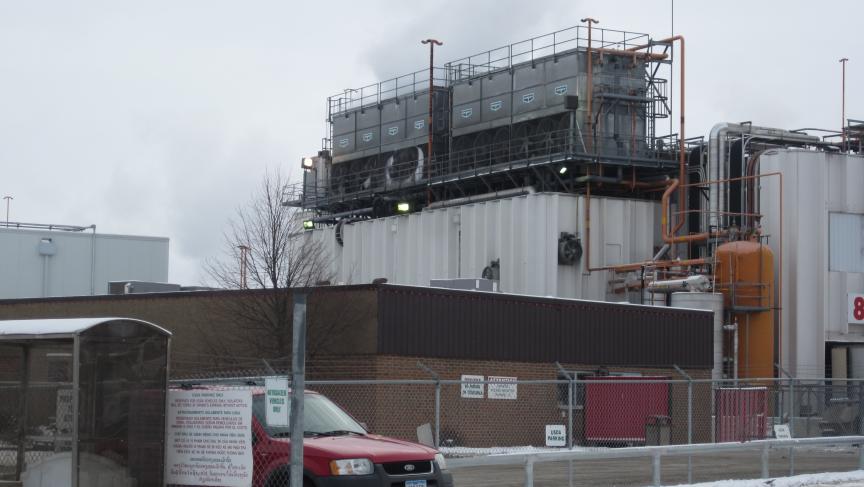6/10/2015
The U.S. Supreme Court announced on Monday, June 8th that it will be reviewing a federal appeals ruling in its next term, petitioned by Tyson Foods, challenging a $5.8 million judgment against the company over unpaid work time at an Iowa pork-processing plant. While the sum of the judgment is miniscule in cases of this magnitude, the outcome of the review could have a far-ranging impact into the eligibility requirements of class-action certification. The case revolves around a claim brought about by a multitude of plant employees, alleging that they were not paid for the time they used to put on and take off their uniforms and safety equipment. A federal district court ruled that the employees could be certified as a class and the Eight Circuit Court of Appeals upheld that decision even though the length of time it took to change into and out of the gear varied upon the type of job and the department in which the employees worked. Tyson’s petition for certiorari is based on whether or not the plaintiffs can use a statistical formula that aggregates and divides the estimated unpaid time, in order to create the lost time amount for an “average employee” and in order to come to an evenly-distributed payment amount. Tyson is arguing that each member of the class should have to prove their specific damages, and that a class should not be certified if it includes people (employees) who may not have been individually harmed by an action.

Photo courtesy of Jason Margolis/PRI
The results of the Supreme Court review could have a lasting impact on class-action certification for years to come. Tyson is basing its argument on what appears to be inconsistencies in mixed lower-court rulings. The Supreme Court’s decision to review the case next term, which begins in October, leads to speculation that members of the Court believe this as well. Lawyers for Tyson pointed to lower-court inconsistencies along with two similar cases, the 2013 Comcast vs. Behrend and the 2011 review of Walmart vs. Dukes. In Comcast, Justice Antonin Scalia ruled in a 5-4 decision that the regression model used by the plaintiffs “could not be accepted as evidence that damages were susceptible of measurement across entire class.” Tyson’s lawyers argued in the petition that “Wal-Mart and Comcast should have put a stop to class certification premised on the notion that class-wide liability and damages can be established through a ‘trial by formula,’ and damages models that ignore the basis of the defendant’s putative liability to each class member.”
The Supreme Court also dismissed the Walmart case, based on gender discrimination, on similar grounds of shaky certification in 2011. Subsequent lower-court decisions, however, have proven the prior Supreme Court rulings to not hold as much weight as previously expected. A ruling by the First Circuit Court of Appeals in a consumer case against pharmaceutical giant AstraZeneca over its drug, Nexium, for example, stated that the Comcast decision could not keep the class from being certified. The plaintiffs argued an antitrust violation when the drug maker blocked a generic version of the drug, and the court allowed certification even though thousands of plaintiffs would have still bought Nexium even if there was a cheaper generic version on the market. Another disparity includes a 2013 District of Columbia ruling on a complaint of rail freight price-fixing in which that court declared the rules of class certification to be “unsettled law.” In addition to Dukes, a similar Walmart appeal involving unpaid breaks is being held in appeal in abeyance until arguments are heard for the Tyson case, likely in the fall. A decision by the Supreme Court could help to avoid repeats of these and other mixed lower-court rulings by creating a stronger-binding standardized precedent.
I have been an unfortunate participant in the run-up to the Supreme Court’s acceptance of this particular case as a plaintiff in a similar case dismissed by the U.S. District Court in Miami. UPS Supply Chain Solutions mislead both its clients and its agents (myself and hundreds others) about the actual dollar amount of fuel surcharges as well as time commitments that were wrongfully unpaid. Judge Joan A. Leonard decertified the estimated $26 million class-action case, titled Dunakin vs. UPS Supply Chain Solutions, in November, 2012 due to the wide disparity of the agents’ claims although acknowledging the potential validity of those said claims. The case was actually a second wave of lawsuits regarding the matter, with UPS settling the first one outside of California federal court. The Dunakin discovery and litigation began in the same California jurisdiction, where a favorable verdict or settlement appeared imminent. The addition of plaintiffs from differing firms in different states, however, gave UPS the opportunity to relocate the case to Florida, where the judiciary is more corporate-friendly. Jurisdictional and individual judicial disparities such as in my experience are likely the reason that the Supreme Court is taking up the case, among other similar measures in the upcoming term. Although accusations of sour grapes may be justified, it will at least bring a small degree of satisfaction to me knowing that some kind of concrete standard could be established in these matters for future cases. Although, I am fearful a pro-defendant precedent will make it even harder to attain class-action certification.
Sources:
Legal Newsline – Jessica M. Karmasek
Reuters (blog) – Alison Frankel
Wall Street Journal – Brent Kendall


Join the conversation!